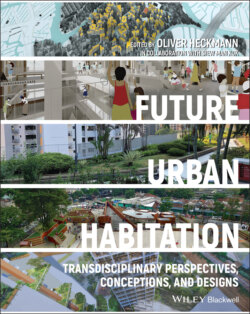Читать книгу Future Urban Habitation - Группа авторов - Страница 30
B‐MINCOME: Exploring a Minimum Income Scheme Together with New Community Interventions
ОглавлениеFrom a wider perspective, and beyond the Radars project, there is the idea of progressively implementing social actions based on methodologies that have a very territorial approach and which are aimed at developing significant community intervention experiences with people in situations of greater vulnerability. This would mainly divided into three aspects. Firstly, it means working with people from the same area in order to collectively detect material and non‐material needs (in education, housing, nutrition, care, coexistence, culture, etc.) as well as skills, abilities, and concerns. Secondly, it involves supporting them in channelling what has been detected through collective projects (based on principles such as self‐sufficiency, self‐organization and the inclusion of diversity), which can create a feeling of belonging to a group of diverse people but with similar needs and strengthen trust and reciprocity ties. Thirdly, the idea is to promote the connectivity of people with local facilities and services (healthcare centres, educational centres, social services centres, public libraries, civic centres, etc.), local associations, and the rest of the neighbourhood, but also with other neighbourhoods, in order to foster territorial transference, prevent segregation, and create a feeling of connection not only within the neighbourhood but also with the city as a whole. These three aspects help to generate social capital of various kinds (specially bridging and linking social capital, which are open and inclusive), although the third is especially important for obtaining access to resources and opportunities that are to be found outside the most close relational circles, thanks to the new relationships and connections that are established (Granovetter 1973). The combination of various types of social capital can contribute to improve people's socio‐economic position and their participation in political and civic life.
This type of intervention was explicitly put into practice between 2018 and 2019, as part of the B‐MINCOME pilot project, which was co‐funded by the Urban Innovative Actions programme (Laín et al. 2019). It was an innovative project aimed at 1000 households in a vulnerable situation and living in the Eix Besòs, one of the most disadvantaged urban areas of Barcelona. Its main objective was to test the effectiveness and efficiency of a comprehensive two‐year policy that combined an economic benefit (a guaranteed minimum income) with inclusive active policies such as a programme of professional training and employment, a policy to foster social entrepreneurship, and the promotion of local community participation. The latter was mostly based on the community perspective defined in the previous paragraph. In accordance with its experimental design, the project sought to provide data on the effects of perceiving the benefit as being conditioned or not conditioned on carrying out one of the policies, and perceiving them as being limited or not limited to additional income. Various analytical strategies were developed which took into account the various ways of participating (one of them inspired by the concept of Universal Basic Income), as well as a comparison with a control group. All in all, the aim of the project was to provide participants with more tools to embark on their own strategies for getting out of the vulnerable situations they found themselves in. It also put into practice a way of doing social policies aimed at reducing dependency on public subsidies and private aids, promoting new collaborations with the third‐sector organizations located in the Eix Besòs area and to focusing on an integrated, community, and territorial perspective.
What we have described up to this point illustrates new practices for coordinating the social and territorial reorganization of care as part of local welfare systems. The challenge lies in recognizing its quality, often considered to be secondary, as being equally decisive for increasing the degree of people's freedom to tackle life's ups and downs, whatever the state of vulnerability they find themselves in.
